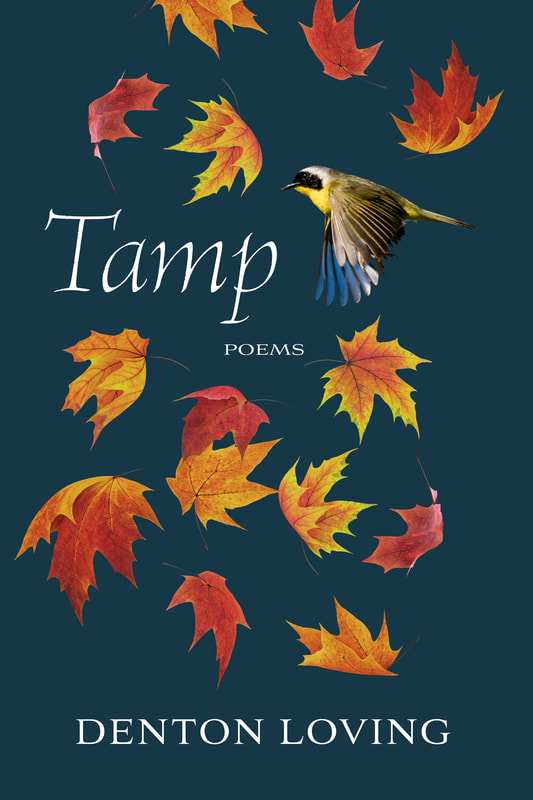|
Grief comes connected to Appalachia in Denton Loving’s new poetry collection, Tamp. A Book Review by Kristy Snedden I first read Tamp on a slow Sunday morning, letting myself sink into Denton Loving’s strong lyric and narrative poems that celebrate the bond between father and son and the grief Loving experienced after his father’s death. The star of these poems is the poet’s beloved Appalachia and the way the land held him and helped him process his relationship with his father and his grief after his father’s death. In the opening poem, “Hurtling,” Loving gets our attention when he takes us from “starlings in my belly” to “stars pinprick the horizon” until soon we are “hurtling across the heavens on the wings of an ancient, magical bird.” In the second poem, “Another River of the Underworld,” Loving writes of “the island of my dead” and it will be the rare reader who doesn’t dive into the grief experience with him. He ends the poem with a line that will resonate for anyone who has lost a loved one with his words, “Sleep is another kind of prayer.” Loving has an uncanny ability to marry image and abstraction in ways that are unforgettable and will have me returning to his collection again and again. “The Fence Builder” starts with the line, “My graves don’t rise or sink.” Loving goes on to describe ways that the land is worked and compares the grave digger who says, “I tamp the dirt at every level” to his father who taught him to “tamp around wooden posts to make a new fence last.” The images in this poem are unique and unforgettable and place the reader in the land that inspires so much of Loving’s writing. More evidence of Loving’s knowledge of himself and his craft is revealed in the poem “There is a barn.” He writes with beauty of “…a man I knew / stacked square hay bales as tight as mice, though the hay was thick with thistles / …the hay was wasted by all but the mice, / always burrowing through the past.” Each poem has layers of meaning that resonate well beyond the first reading. Every poet I know loves the moon, but listen to Loving’s ability to paint this frequently used image in unique and memorable ways when he says of a harvest moon “It charges forward, a wild horse whose / reins you’ve dropped” and in another poem tells us “The yellow moon rides low, expectant as a summer melon” and “the moon hangs before me like a greedy owl.” Loving continues to surprise us throughout the collection. These poems are rich in imagery and lyricism and grounded in a narrative spun out of Appalachia. The bond that endures between father and son is echoed and supported by the bond between human and land. Loving’s companionable, straight-forward, and informal language invites the reader into his experiences living on a farm with an aging orchard in the heart of Appalachia and explores the pull of his ancestors and how they both haunt and hold him. Loving’s poems witness the natural world in a way that reveals the vulnerable heart at the center of grief and his generous writing balances his personal grief with the universality of grief. In the last poem of this collection, “The Topography of Tears,” Loving writes “I wish I had known as a boy that hormones in / psychic tears work as natural pain killers. An analgesic for what ails you.” If you give yourself the gift of this collection, Loving’s narratives and extended metaphors will launch you into your own exploration of the dead who inhabit your island, in a way that brings a new understanding of the tears of grief and the power of remembering. To learn more about Denton Loving and his many writing projects, visit his website at https://dentonloving.com Comments are closed.
|
AuthorWrite something about yourself. No need to be fancy, just an overview. Archives
April 2024
Categories |

 RSS Feed
RSS Feed
